Christopher Monfort is facing accusations of five felonies. Among them, aggravated first-degree murder in the death of Seattle police Officer Timothy Brenton in 2009. If Monfort is convicted on the aggravated murder charges, he potentially faces the death penalty. The trial is winding down and closing arguments have recently begun. These quick facts will bring you up to speed on the details of this case, which resulted in a police officer being killed.
Who is the Defendant?
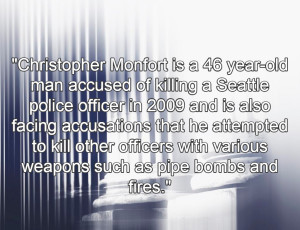 Christopher Monfort is a 46 year-old man accused of killing a Seattle police officer in 2009. He is also facing accusations that he attempted to kill other officers with various weapons such as pipe bombs and fires. He has been described by the state as a violent extremist who was attempting to start a war with the Seattle Police Department. His trial began in January and is expected to conclude soon.
Christopher Monfort is a 46 year-old man accused of killing a Seattle police officer in 2009. He is also facing accusations that he attempted to kill other officers with various weapons such as pipe bombs and fires. He has been described by the state as a violent extremist who was attempting to start a war with the Seattle Police Department. His trial began in January and is expected to conclude soon.
What is the Defense?
Monfort pleaded not guilty by reason of insanity to the aggravated murder charges, as well as the other felonies for which he is on trial. The defense hired a single mental health expert, Dr. Mark Cunningham from Texas, to assert that Monfort suffers from delusions which moved him to kill the officer and attempt to kill others. The main crux of the defense centers on the idea that Monfort’s actions were spurred by such intense hatred, they could only be the actions of a delusional person. According to the Seattle Times, the King County prosecutor said of the insanity defense, “They had no choice. There is no other defense in this case.”
What is the Prosecution’s Strategy?
 The prosecutors are attempting to discredit the notion that Monfort was motivated by delusions, arguing that, “although he is not normal, he is not necessarily insane.” The state consulted with their own mental health expert witness, university professor Ronald Schouten, and attempted to undermine the credibility of defense witness Cunningham. Senior Deputy Prosecutor Jeff Baird described Cunningham as a “professional witness” who gave unclear answers and cherry-picked evidence in order to make his diagnosis. The prosecution noted that, based on discrepancies concerning Monfort’s attitude before and after the killing, the defense was unable to show when Monfort became delusional.
The prosecutors are attempting to discredit the notion that Monfort was motivated by delusions, arguing that, “although he is not normal, he is not necessarily insane.” The state consulted with their own mental health expert witness, university professor Ronald Schouten, and attempted to undermine the credibility of defense witness Cunningham. Senior Deputy Prosecutor Jeff Baird described Cunningham as a “professional witness” who gave unclear answers and cherry-picked evidence in order to make his diagnosis. The prosecution noted that, based on discrepancies concerning Monfort’s attitude before and after the killing, the defense was unable to show when Monfort became delusional.

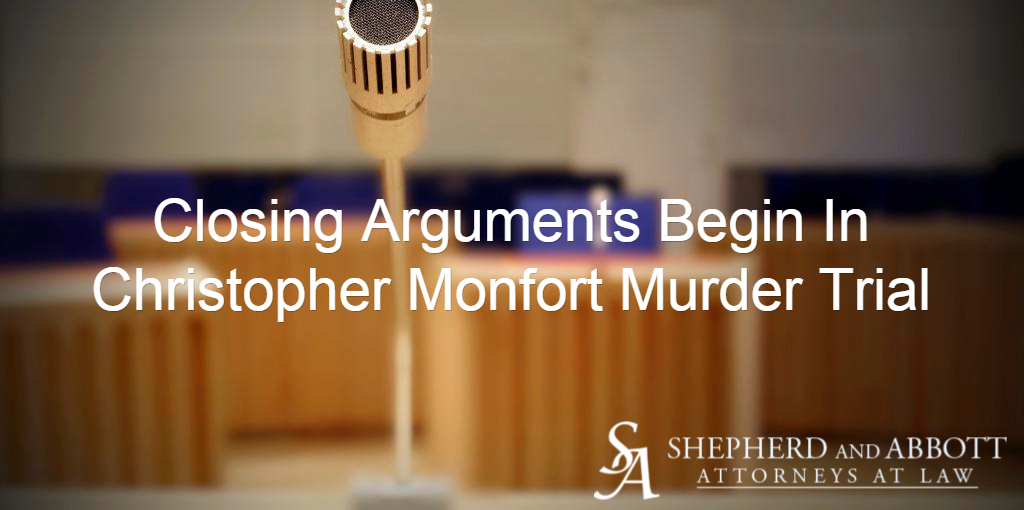

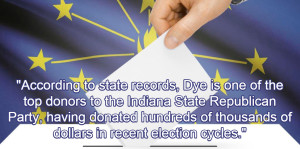 R. Bruce Dye is a well-known Fort Wayne entrepreneur who has founded several companies, notably Heritage Food Service Group, Inc., and Hotel Fitness. According to state records, Dye is one of the top donors to the Indiana State Republican Party, having donated hundreds of thousands of dollars in recent election cycles. He was first the defendant in a sexual abuse lawsuit by Kathy Gonya, Dye’s former executive assistant at his company, Brigadoon Financial, Inc. dba Brigadoon Fitness. Gonya filed the suit in late 2014, after claiming she was terminated from the company due to reporting incidences of sexual abuse and misconduct. Dye filed a counter suit to combat the allegations claiming that he and Gonya shared a consensual sexual relationship for several years.
R. Bruce Dye is a well-known Fort Wayne entrepreneur who has founded several companies, notably Heritage Food Service Group, Inc., and Hotel Fitness. According to state records, Dye is one of the top donors to the Indiana State Republican Party, having donated hundreds of thousands of dollars in recent election cycles. He was first the defendant in a sexual abuse lawsuit by Kathy Gonya, Dye’s former executive assistant at his company, Brigadoon Financial, Inc. dba Brigadoon Fitness. Gonya filed the suit in late 2014, after claiming she was terminated from the company due to reporting incidences of sexual abuse and misconduct. Dye filed a counter suit to combat the allegations claiming that he and Gonya shared a consensual sexual relationship for several years.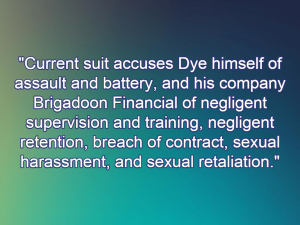 According to the Fort Wayne Journal Gazette, Lahr’s current suit accuses Dye himself of assault and battery, and his company Brigadoon Financial of negligent supervision and training, negligent retention, breach of contract, sexual harassment, and sexual retaliation. Lahr is also alleging that Dye groped her and attempted to enter her hotel room by force while they were on a business trip together in New Orleans.
According to the Fort Wayne Journal Gazette, Lahr’s current suit accuses Dye himself of assault and battery, and his company Brigadoon Financial of negligent supervision and training, negligent retention, breach of contract, sexual harassment, and sexual retaliation. Lahr is also alleging that Dye groped her and attempted to enter her hotel room by force while they were on a business trip together in New Orleans.
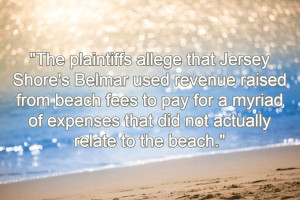 The language of the complaint insinuates that Mayor Doherty and the council acted in the manner described above in the interest of Belmar and its taxpaying constituency. The plaintiffs allege that Jersey Shore’s Belmar used revenue raised from beach fees to pay for a myriad of expenses that did not actually relate to the beach.
The language of the complaint insinuates that Mayor Doherty and the council acted in the manner described above in the interest of Belmar and its taxpaying constituency. The plaintiffs allege that Jersey Shore’s Belmar used revenue raised from beach fees to pay for a myriad of expenses that did not actually relate to the beach.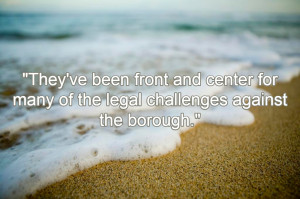 The group of plaintiffs is led by Belmar resident Joy DeSanctis and represented by former Mayor Kenneth Pringle’s law firm. They’ve been front and center for many of the legal challenges against the borough. DeSanctis alleges that the current mayor has displayed a pattern of using Belmar accounts to pay bills unrelated to public services. She alleges that Mayor Doherty has “…disregarded the true obligation of the accounts and legal guidelines of [their] use.”
The group of plaintiffs is led by Belmar resident Joy DeSanctis and represented by former Mayor Kenneth Pringle’s law firm. They’ve been front and center for many of the legal challenges against the borough. DeSanctis alleges that the current mayor has displayed a pattern of using Belmar accounts to pay bills unrelated to public services. She alleges that Mayor Doherty has “…disregarded the true obligation of the accounts and legal guidelines of [their] use.”
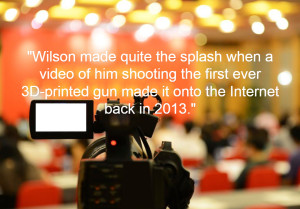 in his lawsuit as it allegedly threatened him to remove the code. He alleges that the State Department’s orders violated his right to freely express himself.
in his lawsuit as it allegedly threatened him to remove the code. He alleges that the State Department’s orders violated his right to freely express himself. the web might equate to illegally providing blueprints across the globe without the proper license. Yet the department never actually determined if Wilson needed a license to post his code. Wilson’s code was downloaded over 100,000 times in only two days and has since spread to Torrent websites.
the web might equate to illegally providing blueprints across the globe without the proper license. Yet the department never actually determined if Wilson needed a license to post his code. Wilson’s code was downloaded over 100,000 times in only two days and has since spread to Torrent websites.
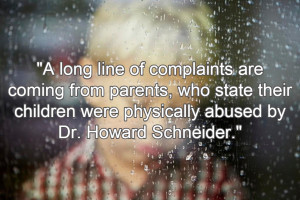 A long line of complaints are coming from parents, who state their children were physically abused by Dr. Howard Schneider. The dentist office is also being investigated by the Florida General Attorney for Medicaid fraud. This case was filed first and separately from the abuse and torture allegations.
A long line of complaints are coming from parents, who state their children were physically abused by Dr. Howard Schneider. The dentist office is also being investigated by the Florida General Attorney for Medicaid fraud. This case was filed first and separately from the abuse and torture allegations. While Dr. Schneider hasn’t ever served time or been convicted for these types of acts, there is a history of prior, similar lawsuits that got dismissed. The Jacksonville Sheriff’s office has also been called to his office for complaints regarding excessive force against the patients.
While Dr. Schneider hasn’t ever served time or been convicted for these types of acts, there is a history of prior, similar lawsuits that got dismissed. The Jacksonville Sheriff’s office has also been called to his office for complaints regarding excessive force against the patients.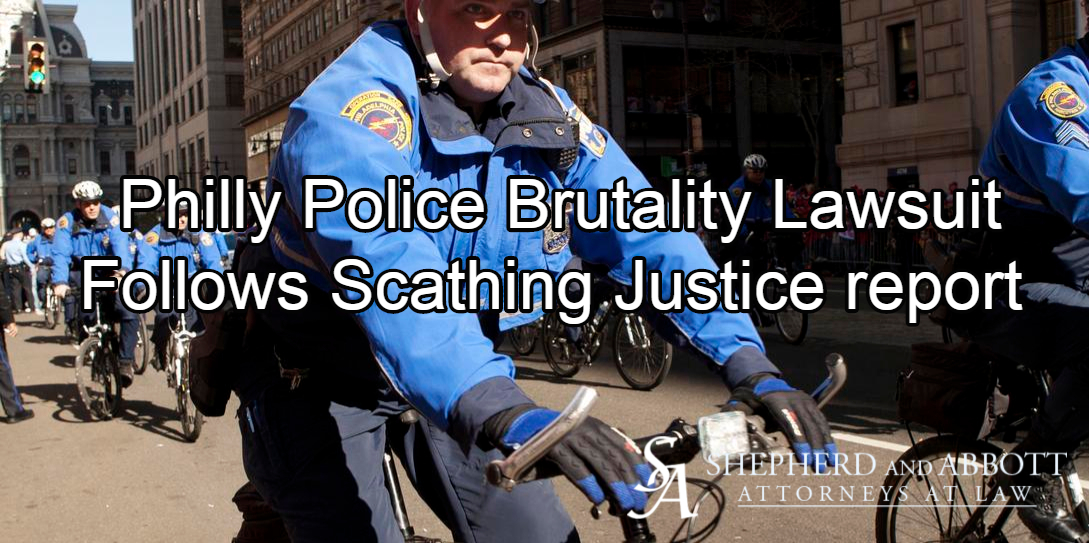
 Philly police shot about one person each week since 2007, with the high rate attributable to mistrust by the public, training flaws and other system-wide problems.
Philly police shot about one person each week since 2007, with the high rate attributable to mistrust by the public, training flaws and other system-wide problems. Nearly 400 times over the last eight years, Philadelphia police officers have fired their weapons at suspects, the Justice Department report noted. Most of the 454 officers involved were on patrol at the times of the shootings, and most of the suspects and officers involved were black, the
Nearly 400 times over the last eight years, Philadelphia police officers have fired their weapons at suspects, the Justice Department report noted. Most of the 454 officers involved were on patrol at the times of the shootings, and most of the suspects and officers involved were black, the 
 Moncrief left the Police Department after the incident. No statement has been released to determine whether he was fired or he resigned from duty. He is now 40 years old. The woman was not charged with anything and there was an investigation after the incident. Moncrief was unable to be contacted after the conclusion to the lawsuit.
Moncrief left the Police Department after the incident. No statement has been released to determine whether he was fired or he resigned from duty. He is now 40 years old. The woman was not charged with anything and there was an investigation after the incident. Moncrief was unable to be contacted after the conclusion to the lawsuit. Since these allegations and lawsuits, many changes have been made on the force. There is now an official policy to report all incidents of misconduct by other officers. It is now also required that two officers are present when a woman is arrested and taken to jail. Police officers must now wear body cameras as well.
Since these allegations and lawsuits, many changes have been made on the force. There is now an official policy to report all incidents of misconduct by other officers. It is now also required that two officers are present when a woman is arrested and taken to jail. Police officers must now wear body cameras as well.
 July 2014. He was accused of using the golf club as a weapon. Wingate claimed that he was using the golf club as a cane.
July 2014. He was accused of using the golf club as a weapon. Wingate claimed that he was using the golf club as a cane.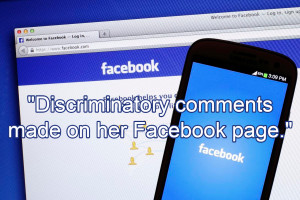 her 17 year long career as a police officer. Ultimately, he was not charged with the obstruction claim.
her 17 year long career as a police officer. Ultimately, he was not charged with the obstruction claim.
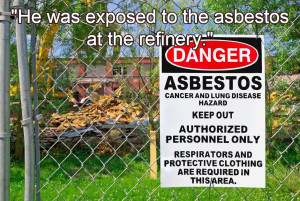 Brandes, who died in January, worked at the ARCO Cherry Point refinery and was exposed to the asbestos at the Whatcom County refinery.
Brandes, who died in January, worked at the ARCO Cherry Point refinery and was exposed to the asbestos at the Whatcom County refinery. children. He had no idea that the contamination and toxins on his clothing could lead to asbestos related diseases.
children. He had no idea that the contamination and toxins on his clothing could lead to asbestos related diseases.
 Pictures he included in his post were of the livestock of a local farmer, used without permission. When posting about a vegan lifestyle and providing a sort of indictment about cruelty to animals continued to happen, Allison was eventually fired.
Pictures he included in his post were of the livestock of a local farmer, used without permission. When posting about a vegan lifestyle and providing a sort of indictment about cruelty to animals continued to happen, Allison was eventually fired. Although not common, lawsuit settlement cases similar to this do occur from time-to-time regarding free speech rights and employers attempting to control that speech outside of the workplace. In this case, the school district actually had a policy that indicated staff had free speech rights, as long as the speech was constitutional and didn’t cause an undue interruption at school.
Although not common, lawsuit settlement cases similar to this do occur from time-to-time regarding free speech rights and employers attempting to control that speech outside of the workplace. In this case, the school district actually had a policy that indicated staff had free speech rights, as long as the speech was constitutional and didn’t cause an undue interruption at school.